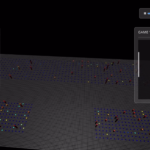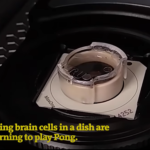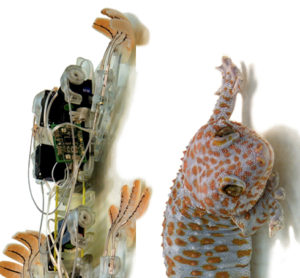News, Researchers Teach Human Brain Cells in a Dish to Play “Pong”
Researchers at the biotechnology startup Cortical Labs have created “mini-brains“ consisting of 800,000 to one million living human brain cells in a petri dish, New Scientist reports. The cells are placed on top of a microelectrode array that analyzes the neural activity. “We think it’s fair to call them cyborg brains,” Brett Kagan, chief scientific officer at Cortical Labs and research lead of the project, told New Scientist.
To teach the mini-brains the game, the team created a simplified version of “Pong” with no opponent. A signal is sent to either the right or left of the array to indicate where the ball is, and the neurons from the brain cells send signals back to move the paddle.
Kagan said that while the mini-brains can’t play the game as well as a human, they do learn faster than some AIs. “The amazon aspect is how quickly it learns, in five minutes, in real time,” he told New Scientist. “That’s really an amazing thing that biology can do.” The team at Cortical Labs hope to use their findings to develop sophisticated technology using “live biological neurons integrated with traditional silicon computing,” according to the outfit’s website.
Learn about our two Decals!
 Click here to find out more about our Fall Bioinspired Design Decal and our Spring Bioinspired Design in Action Decal – ALL MAJORS are welcome.
Click here to find out more about our Fall Bioinspired Design Decal and our Spring Bioinspired Design in Action Decal – ALL MAJORS are welcome.Berkeley BioDesign Community
 Click here to learn about the BioD: Bio-Inspired Design @ Berkeley student organization or here to signup for more info.
Click here to learn about the BioD: Bio-Inspired Design @ Berkeley student organization or here to signup for more info.Search
Student Login





I imagine that the neurological circuits underlying these processes are governed by both 2d spacing maps with their brains as…
to reduce the impact of car accidents, it may be possible to study the force diverting physics of cockroaches to…
you see this type of head-bobbing stability in many avian creatures related to pigeons like chickens. the head ability to…
not like they taught horses how to run! this is an example of convergent evolution where both sea creatures and…
The brain functions in a similar way with neuronal connections. our brains are able to utilize the multiplicity of connections…